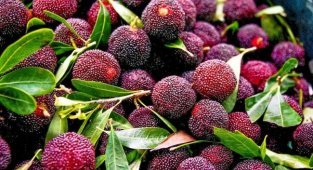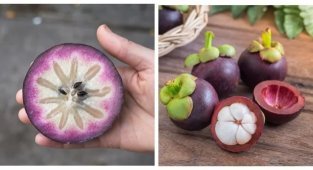An amazing fruit, the main feature of which, in addition to taste, is that it knits. But you can brew coffee or make beer from it. 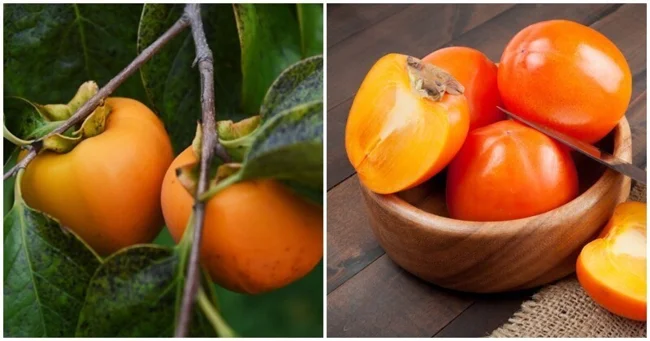
Under the translucent shell of the persimmon, one or more seeds are hidden, surrounded by juicy and fleshy pulp. By the way, from this we conclude that this fruit, so similar to a tomato, turned out to be a berry. Just like the tomato itself. 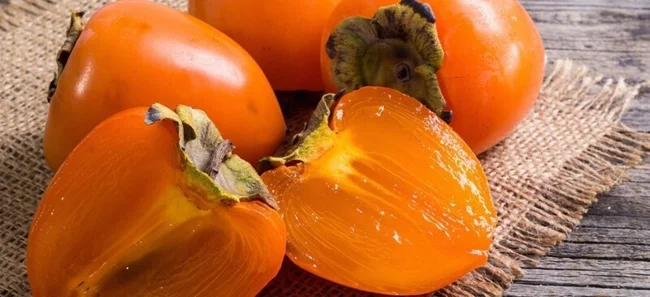
Persimmon translated from Latin means “food of the gods.” The berry is also called winter cherry, passion apple, Chinese peach, heart apple. The word "persimmon" comes from Farsi. Ancient people dried it and took it with them as a snack, and it tasted like dates. Therefore, the fruit was called “hormalu”, which means “date plum”.
Turkish, Azerbaijani, Crimean Tatar χurma means "date". In Armenia, the real fruits of the date palm are called Baghdad persimmon. 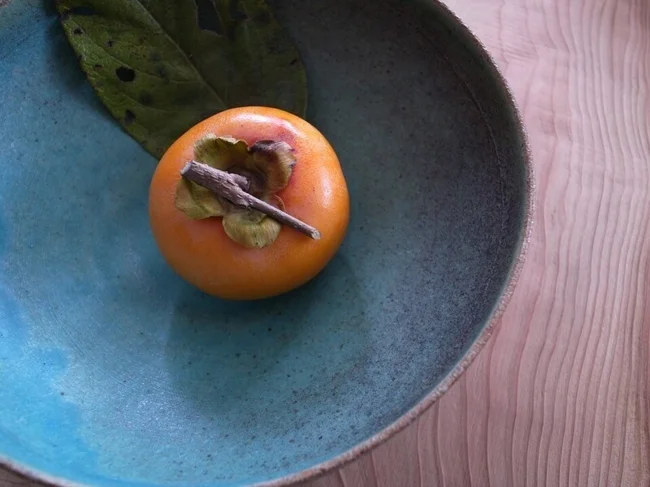
There are more than one and a half thousand varieties of persimmon. In Africa, for example, it is a three-centimeter-long crumb from Africa with a dark red color, an American “black apple”, which resembles dark chocolate in taste and color, and a “Caucasian” with tentacles.
The second name for persimmon is “chocolate pudding”. 
From the wood of some tropical varieties of persimmon growing in West Africa, on the island of Sri Lanka, in India, in southeast Asia, valuable black wood is obtained, which is called Ebony or Ebony wood. Ebony furniture and ebony musical instruments are made from it.
This is expensive because since 1994 these trees have been included in the red book due to excessive cutting. 
Beer was made from persimmons, which was highly valued in the USA. The drink was 3% ABV, peach-colored, and tasted sweet and spicy. It was given to slaves working in the fields who needed vitamins and glucose. This beer was refreshing and energizing. But in Japan, excellent sake was made from unripe persimmons. 
During the American Civil War, persimmons were a way to survive during difficult times. Persimmon seeds were peeled, dried, fried and ground into flour, from which bread was baked. Tea was made from persimmon leaves, and the roasted and ground seeds were used as a coffee substitute. 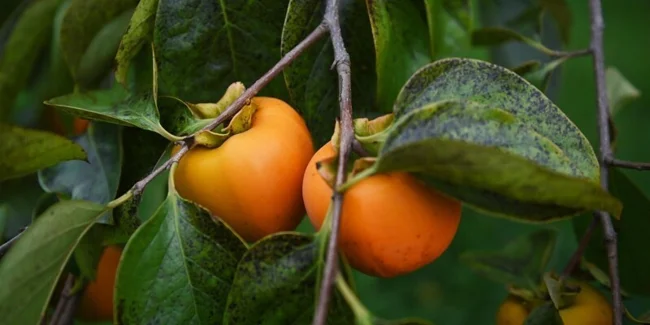
What benefits does persimmon do for you: improves the functioning of the cardiovascular system, thyroid gland, gastrointestinal tract and in transit removes toxins from the body through the genitourinary system, taking with it morning swelling.
In Thailand and Korea, it is used to get rid of worms and treat dysentery and bronchitis. Also, due to the high magnesium content, the berry can calm you down and at the same time increase your immunity.
And if you dry it, you can maintain collagen production all year round. 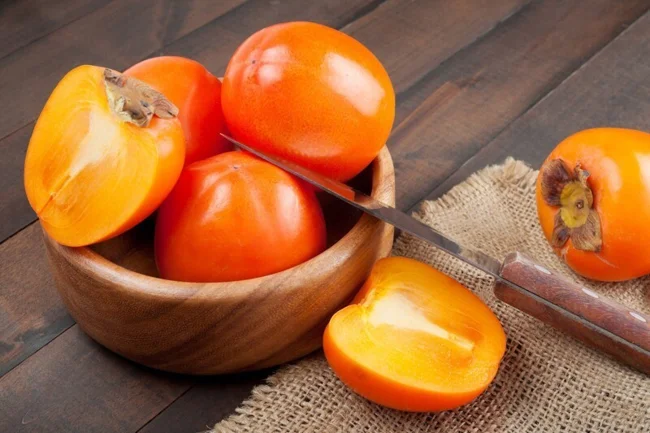
But it is better not to combine it with easily digestible proteins: seafood, fish, dairy products.
By the way, we feel that same astringent taste in our mouth if we eat unripe persimmons. This is how the body lets us know not to lean on unripe berries. Otherwise, tannins that enter the body from persimmons stick together with food proteins and bind into dense balls - phytobezoars. 
A bezoar is a stone in the stomach that is formed from tightly matted plant fibers. And there is no way to get rid of it without the help of a surgeon. 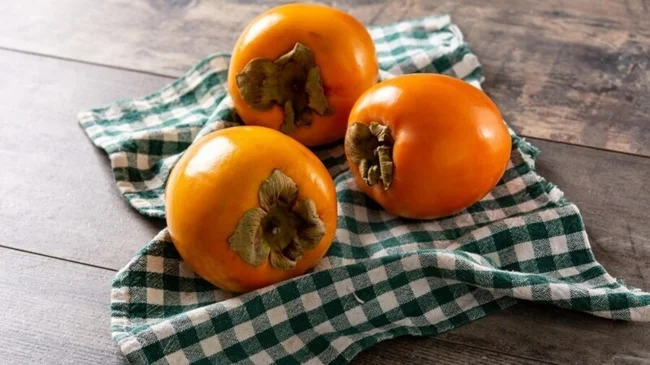
Also, persimmon is a real godsend for those with a sweet tooth. One hundred grams of persimmon contains only 67 kcal. But thanks to the high content of glucose and fiber, persimmon gives an almost instant feeling of fullness, which lasts for quite a long time.
0 comments
